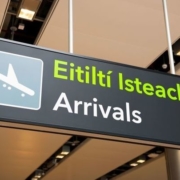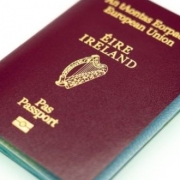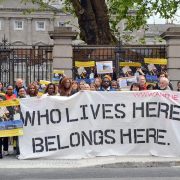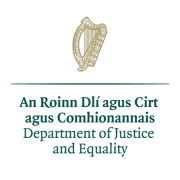A Convention Travel Document refers to a travel document issued in accordance with Article 28 of the Geneva Convention and is a document issued to refugees.
Ireland is a signatory to the European Agreement on the Abolition of Visas for Refugees and as part of this arrangement the holder of a Convention Travel Document issued by another contracting State is not subject to Irish visa requirements for short stays of up to 90 days and can request entry to Ireland for up to 90 days as a non-visa required person.
If a person with a Convention Travel Document from a relevant country wishes to live or reside in Ireland on a long-term basis, they are required to apply for a visa in advance of travel to the State, the visa waiver applies only to short stays of up to 90 days.
This applies to holders of a Convention Travel Document issued by Belgium, Czech Republic, Denmark, Finland, Germany, Hungary, Iceland, Italy, Liechtenstein, Luxembourg, Malta, Netherlands, Norway, Poland, Portugal, Romania, Slovak Republic, Spain, Sweden, or Switzerland.
As of Tuesday 19th July 2022, Ireland has decided to avail of the option to temporarily suspend the operation of this Agreement in Ireland for a period of 12 months.
Article 7 of the Agreement allows for signatories to the Agreement to temporarily suspend its operation for several reasons, including public order, security, or public health.
The Government announced yesterday that Ireland’s temporary suspension of the Agreement will be notified to the Council of Europe.
The Government will also be required to make an order to amend the Immigration Act 2004 (Visas) Order 2014 to put the requirement for entry visas for holders of refugee convention documents from the relevant countries on a statutory footing.
The Minister for Justice has stated that the reason for the move to suspend the operation of the Agreement in Ireland is due to the number of applications for international protection in Ireland by those who have been granted refugee status in another State.
The Minister’s notice states that from January 2021 to January 2022 the Minister was notified that 760 applicants for international protection had been granted international protection in another State, with 479 being granted protection in the Member States whose beneficiaries of international protection are visa exempt.
We would submit that 479 is a small number when the applications for international/ temporary protection are considered.
Between January 2019 to January 2022 the Minister has indicated she received 6,494 applications for international protection. As of 10th July 2022, 43,256 PPS numbers have been issued to Ukrainian nationals, indicating over 40,000 Ukrainian nationals have been granted temporary protection in Ireland.
Furthermore, persons who have been granted refugee status in another country may still have a valid claim to make for protection in Ireland. We recall the case of MAH v The Minister for Justice [2021] IEHC 302, judgement delivered on 30th April 2021 by Ms Justice Tara Burns. The Applicant was a Somali national who had studied medicine in Ukraine. Upon completion of her studies, she returned to Somalia where she worked as a junior doctor. During this time, the Applicant was subjected to threats from a fundamentalist group and so she fled to Ukraine by renewing her student visa. Upon the expiry of her student visa, she applied for asylum in Hungary and was granted refugee status. However, the applicant was homeless in Hungary, and was unable to obtain work. She was physically assaulted by a man and feared being sexually assaulted by others. She also experienced significant racist abuse. The Minister for Justice in Ireland issued a deportation order against the Applicant.
Ms Justice Burns assessed the Respondent’s consideration under Section 3 of the Immigration Act 1999 as amended, and stated her findings as follows:
I am of the view that the Respondent incorrectly assessed the COI; failed to consider whether the presumption that her fundamental rights would be upheld in Hungary had been rebutted; and failed to properly consider the Applicant’s employment prospects pursuant to s. 3(6)(f) of the 1999 Act, the Respondent’s determination in respect of the Deportation Order is vitiated by these errors.
In granting the Applicant the reliefs sought, Ms Justice Burns summarised that:
‘the founding architects of the system of international protection which is in place in Europe today, would be of the view that we, as a people, have badly failed the Applicant in this case.’
A link to our blog on this judgement can be found here.
We would argue that it is unfair and unhelpful that the justification put forward by the Minister for Justice in suspending the operation of this agreement in Ireland is abuse of the system.








